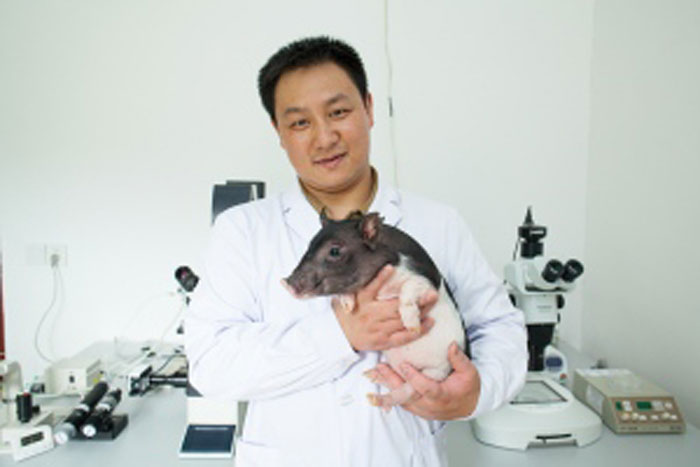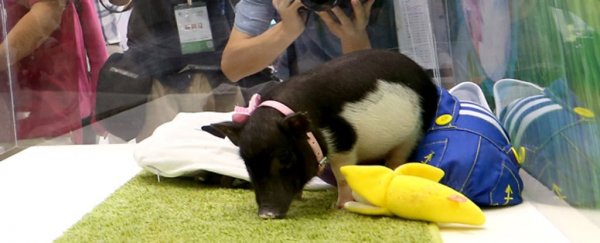Specially engineered 'micropigs' that will only grow to be as big as a medium-sized dog thanks to the wonders of gene editing are set to go on sale in China, the Beijing Genomics Institute (BGI) announced last week.
The gene-edited micropigs were originally created for research purposes but will soon be available to the public for the equivalent of US$1,600 each, according to a report by David Cyranoski in Nature. When fully mature, these micropigs only grow to about 15 kilograms, which could make them attractive to many as a household pet.
Announcing the venture at the Shenzhen International Biotech Leaders Summit last week, BGI's technical director of animal science, Yong Li, said the US$1,600 price tag was a commercial experiment to "help us better evaluate the market".
In addition to having a pint-sized pig as a pet, owners will also be able to choose from a range of different coat colours and patterns, which BGI says it will offer to consumers in the future.
 Credit: BGI
Credit: BGI
The micropigs were originally bred by applying gene-editing techniques to the Bama pig – an already miniaturised breed that usually weighs between 30 and 50 kilograms. The BGI researchers cloned Bama pigs and used TALENs enzymes to block growth hormones in the cloned foetal cells.
The stunted male pigs that resulted from the process were then bred with normal females, resulting in healthy second-generation micropigs, which BGI says display no adverse health effects.
But not everybody is thrilled about the pet developments, with numerous scientists expressing ethical concerns over gene-editing technologies being used for such frivolous ends.
"It's questionable whether we should impact the life, health and well-being of other animal species on this planet light-heartedly," geneticist Jens Boch told Cyranoski. Boch, a researcher with the Martin Luther University of Halle-Wittenberg in Germany, helped to develop the TALENs technique BGI uses to create its micropigs.
Even Lars Bolund, a geneticist who helped the company develop its gene-editing platform for micropigs, was surprised at BGI's announcement that it will now sell the animals as pets. But according to Cyranoski, the micropigs "stole the show" at the Shenzhen conference. "We had a bigger crowd than anyone," said Bolund. "People were attached to them. Everyone wanted to hold them."
According to Li, any profits BGI realises from the sale of micropigs as pets will be reinvested in the company's research efforts. "We plan to take orders from customers now and see what the scale of the demand is," he said.
